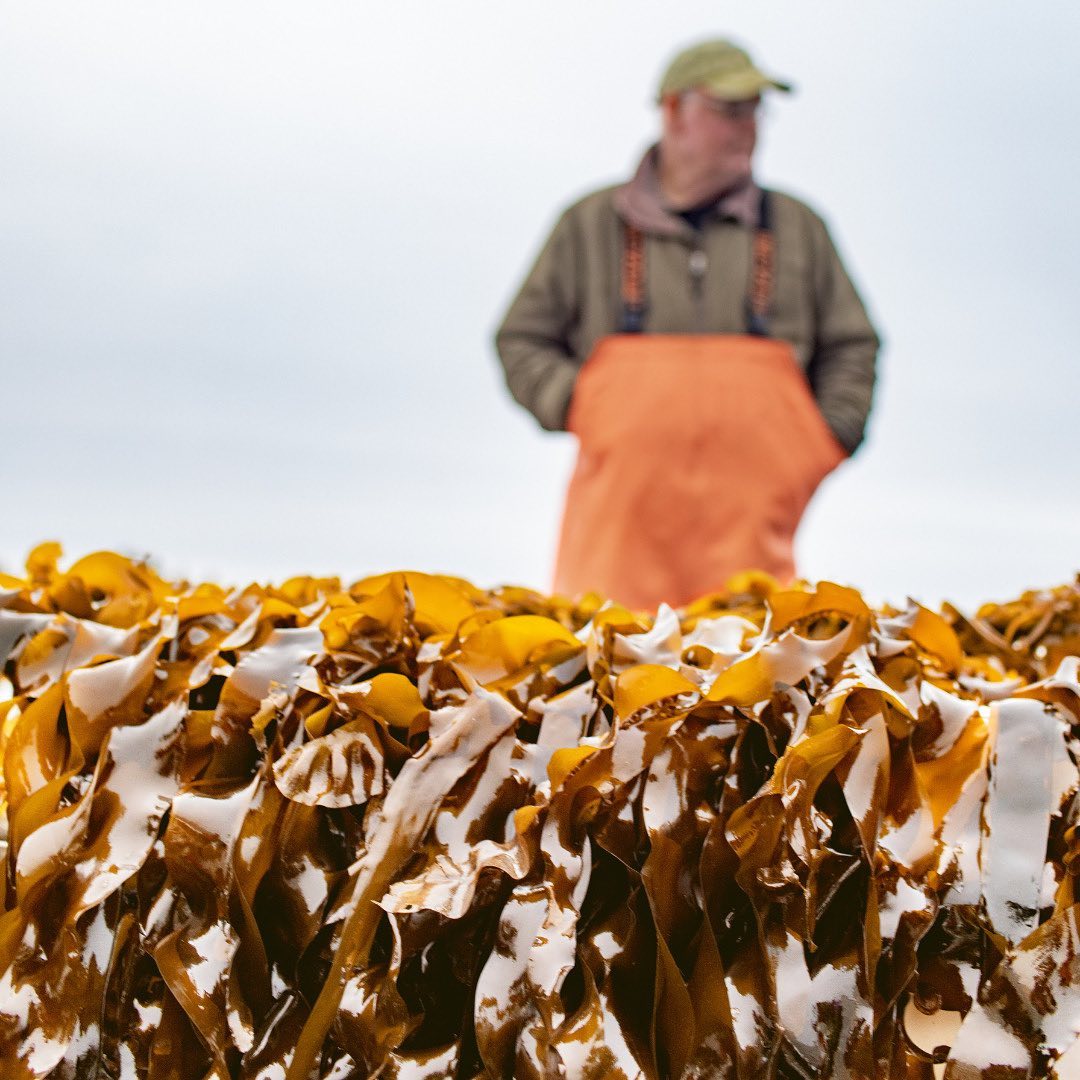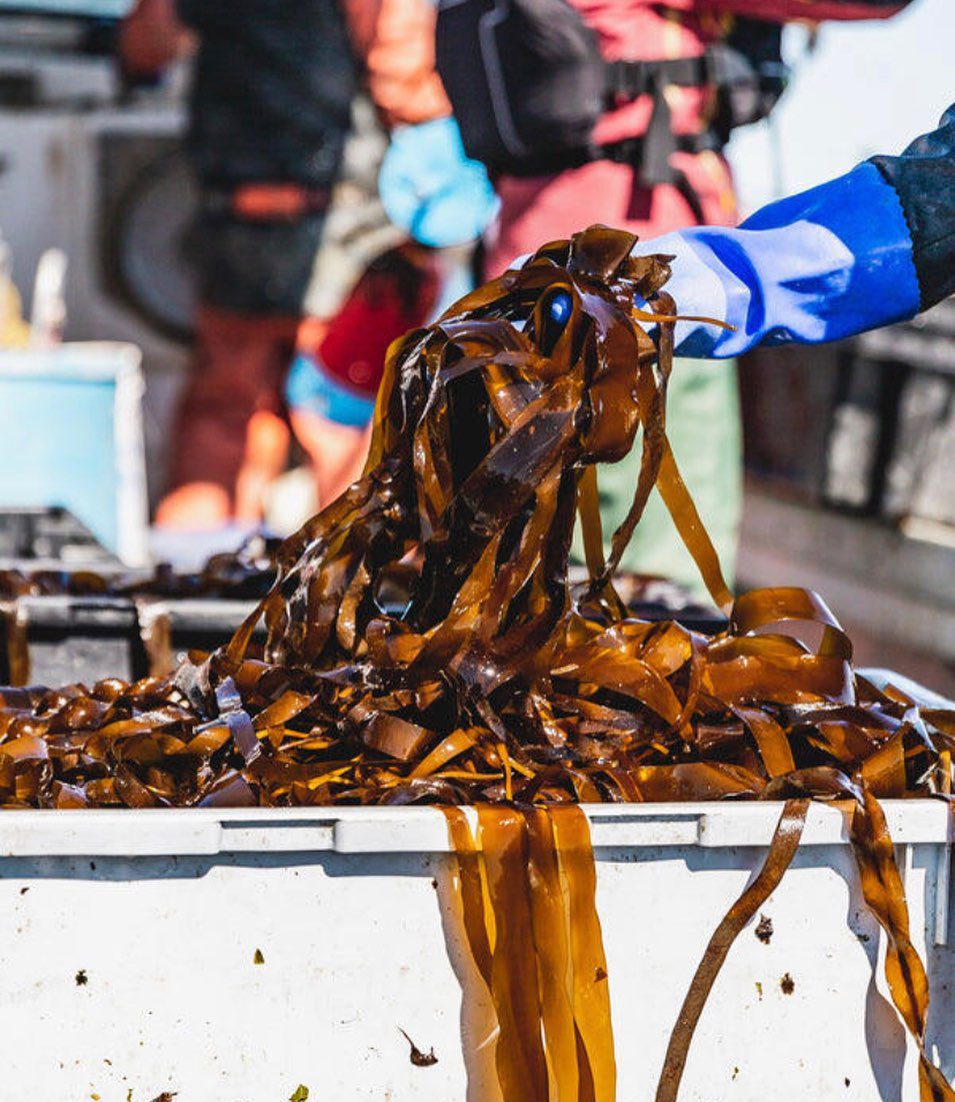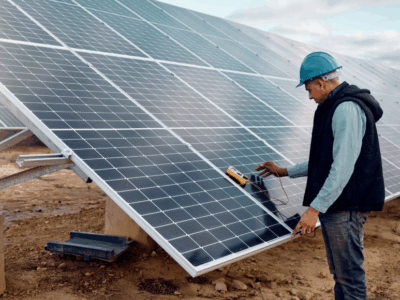Deep below the white-capped waters of Portland, Maine, green gold floats with the shifting tides. More commonly referred to as seaweed, Kelp is a superfood in its own right. The green wonder boasts a rich array of nutrients and consequently is used in a variety of foods from smoothies to salad to sushi and sauces. In the U.S., though, kelp is a relatively untapped treasure in harvesting.
In the international market, 98% of the kelp is sourced from East Asian countries due to its usage in many recognizable dishes native to the region and its natural abundance off Asia’s coast.

Across the United States, kelp has risen in popularity with the health craze of the 2010s.
Shortly before in 2009, Atlantic Sea Farms in Biddeford, Maine, recognized the emerging consumer demand and lack of a domestic market. So, it set out on a mission to change the seascape of the kelp market and improve the economic stability of Maine’s renowned lobster farmers in the process.
In addition to being almost exclusively an international product, imports and exports can take a significant amount of time, meaning perishable goods like kelp have to be altered to not expire by the time they arrive. As a result, increased additives, including dyes, dehydrated kelp, and sometimes a rehydration process are required once it lands stateside. Even though that’s how it has always been, ASF wanted to change the status quo, offering fresher, unaltered kelp grown in U.S. waters.
“Our company’s goal is to create craveable products that increase demand for line-grown seaweed from Maine,” says the company’s CEO Bri Warner. Along with spreading the love for kelp, ASF is committed to bettering the oceans. This super seaweed is also a natural deacidification agent for ocean ecosystems, helping to leave its growing environment cleaner than before.
“Here in Maine, climate change is already making landfall, and our future depends on finding new ways for lobster fishermen to work on the water while improving the health of our oceans,” the organization’s mission statement reads.
Lobster is harvested in the summer. While it is a lucrative market, the income is mainly concentrated in that one season, leaving over 4,000 highly skilled workers off of Maine’s coast upstream without a paddle.
Warner says her hope in founding ASF was as much for economic development reasons as it was environmental, with the former actualizing as an alternative source of income for lobster fishers who already have the skills, knowledge, and materials (like boats) to plant harvest kelp. Atlantic Sea Farms sets itself apart from traditional agricultural or aquaculture operations by contracting with local sea farmers. It even has a guaranteed buyback program where ASF provides the seeds to the farmers for free, promising that Atlantic, once fully grown, will buy it back for resale.

“Fresh kelp is both nutritious and regenerative; it’s an ideal way to increase our positive impact on coastal communities and the ocean,” the CEO said.





